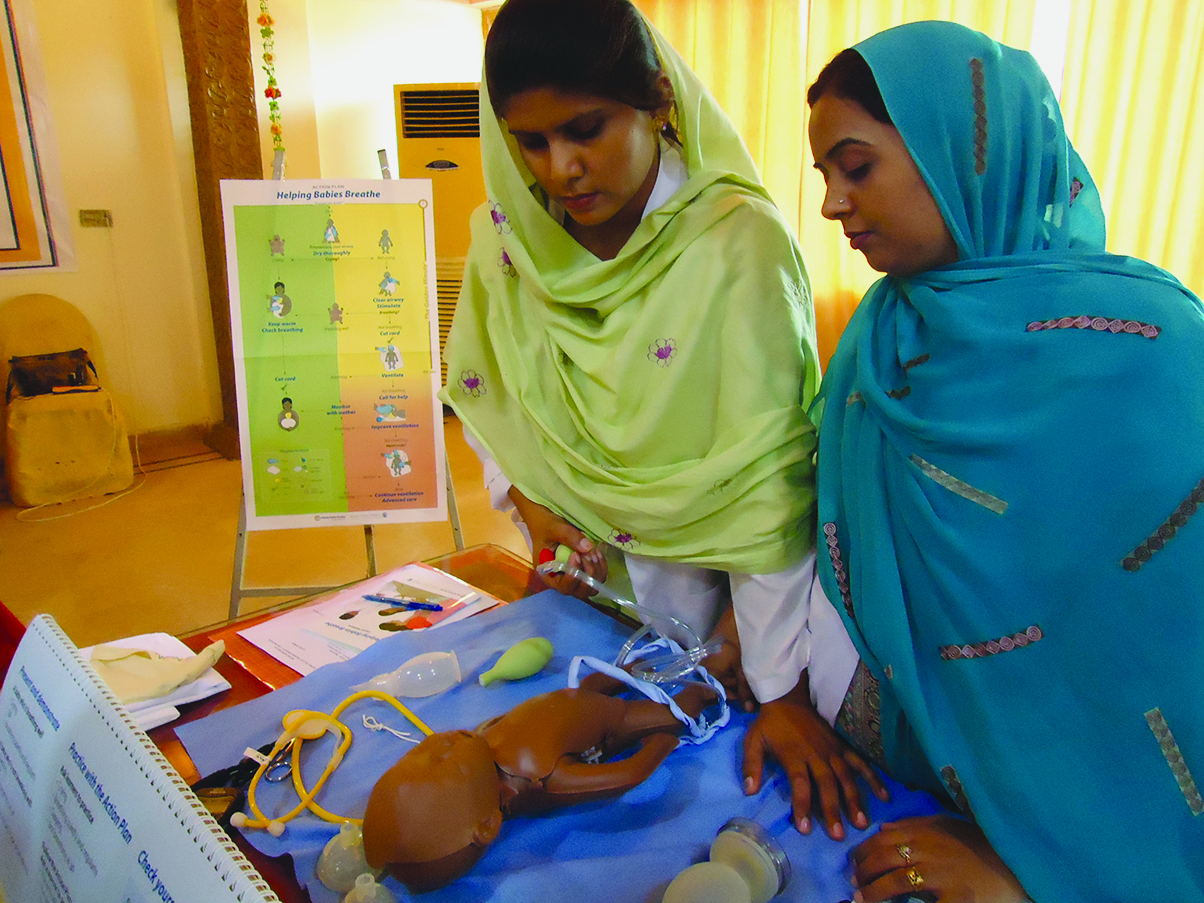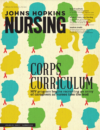Pakistani nurse revives infant with Helping Babies Breathe techniques
By Bibi Ara
Khairpur, Pakistan–The 36-year-old woman arrived at the Lady Wellington Hospital in labor, exhausted and anxious that her baby would not survive. Abida, the mother of one previous child, had a history of miscarriages and failed pregnancies.

“It was a prolonged labor at home. … The staff performed a vaginal examination and found that she was 10 centimeters dilated but the baby was in distress,” recalls Tasleem Mirani, the only nurse in the labor ward that morning. “I quickly assessed her condition and … prepared her for delivery.”
As Abida gave a last push, “there it was, a tiny baby girl, quite a bundle of joy, except she was pale and almost lifeless,” says Mirani.
The nurse recognized the problem immediately–birth asphyxia, a leading cause of newborn deaths worldwide. Mirani knew she had 60 seconds to resuscitate the newborn before the condition would cause irreparable harm or death. She was among 121 nurses and midwives from Sindh province who had participated in an innovative newborn resuscitation program supported by the U.S. Maternal and Child Health Integrated Program (MCHIP), led by Jhpiego. Helping Babies Breathe (HBB) is an evidence-based program designed to teach resuscitation techniques to midwives in healthcare facilities that lack sufficient health professionals.
Under HBB, the quality of care administered within the first 60 seconds of a baby’s life– “The Golden Minute”–can determine whether or not the newborn will survive.
Although preventable, birth asphyxia contributes to 920,000 newborn deaths a year, approximately 28 percent of the estimated 3.3 million babies who die within the first month of life, according to the Ending Newborn Deaths: Ensuring Every Baby Survives report published by Save the Children, an MCHIP partner. It can lead to serious neurological conditions ranging from cerebral palsy and mental retardation to epilepsy. In Pakistan, approximately 280,000 newborns die at birth, due in part to limited access to skilled birth attendants.
Once Mirani noticed the ashen color of Abida’s baby girl, she sprang into action. She lifted the baby off Abida’s stomach, where she had been placed as part of skin-to-skin contact and mother-to-child bonding, and rubbed the infant’s back.
She used a sucker bulb to remove any mucus clogging the baby’s airways. When that did not help, Mirani cut the umbilical cord and rushed the baby to the labor room’s HBB table, where an Ambu bag — a manual resuscitator — and pictorial instruction chart were waiting.
As the nurse pumped the Ambu bag, the tiny baby girl’s skin began to turn pink and she cried out with life. An exultant Mirani returned the baby to her mother to keep the infant warm. “I was so proud when I gave the crying baby to her mother for skin-to-skin care,” she recalls.
And Abida was overjoyed, knowing that her small family had a new addition–a healthy girl.
